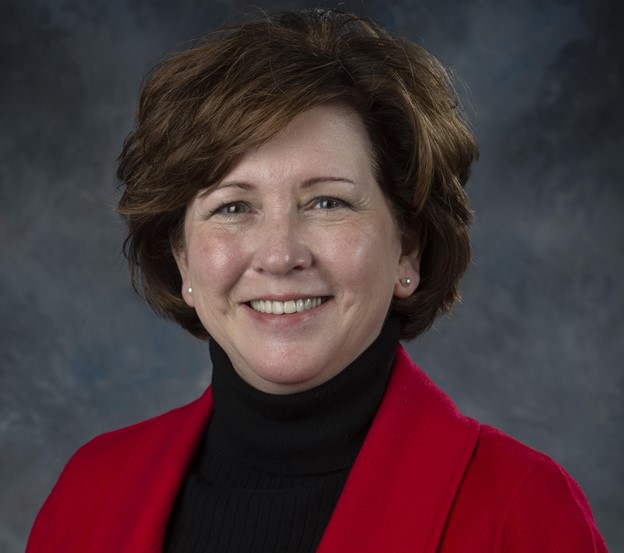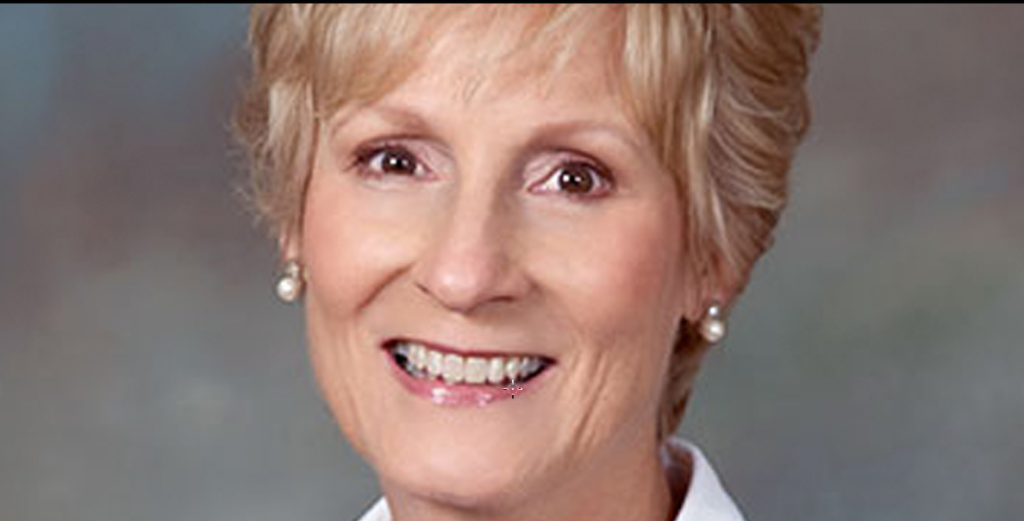Personnel update: Kim Boswell to serve as Commissioner of the Alabama Department of Mental Health

Gov. Kay Ivey announced Monday that Lynn Beshear will retire as Commissioner of the Alabama Department of Mental Health (ADMH) effective December 16, 2020. Beshear was appointed to the position in July 2017. Ivey has hired Kim Boswell as Beshear’s replacement. “When Lynn was appointed, I knew that she would approach her role always thinking of what is best for the people of Alabama,” Governor Ivey stated. “She has created a collaborative team approach within the Alabama Department of Mental Health to solve intricate problems regarding delivery of services for mental illness, substance abuse disorder, and intellectual disability. I am truly grateful for her service to our state and wish her the best in her next chapter.” Beshear stated, “It has been an honor to serve as the Commissioner of the department. I am stepping into the next chapter of my life, proud of the accomplishments of the department and am incredibly honored to have worked with such dedicated individuals who are committed to improving the lives of others. I profoundly thank Governor Ivey for her trust in me these last three years and have no doubt the department will continue to change the lives of the people of Alabama for the better.” Under Commissioner Beshear’s leadership, the ADMH launched Stepping Up Alabama, a program to reduce the number of individuals in jail with mental illness. Additionally, three mental health crisis centers were announced as crisis diversion centers, and there was the expansion of school-based mental health and infant and early childhood services during her tenure. Boswell currently works as Chief of Staff for Commissioner Beshear and has over 36 years of experience working with individuals with mental illness, substance abuse disorders, and developmental disabilities. She has been an Associate Commissioner for Administration and Director of Human Services for the Alabama Department of Mental Health. Boswell received a Bachelor of Social Work from The University of Alabama Birmingham and a Master of Social Work from Florida State University, with a specialization in planning and program evaluation. “I’m pleased to announce Kim Boswell as Commissioner for the Alabama Department of Mental Health,” Governor Ivey commented. “She has spent the entirety of her professional career devoted to helping struggling individuals, and I appreciate her willingness to serve in this new capacity. Her background as a mental health provider as well as administrator makes her uniquely qualified.”
Corrections, gambling to be focus of legislative session

The state prison crisis is expected to take center stage in the legislative session.
What Alabama is doing to combat suicide, and what you can do to help

With Mental Health Awareness month, and the heavily publicized suicide of Alabama Attorney General Steve Marshall‘s wife, only a few weeks behind us, we would be remiss not to keep the conversation about mental health going. “Often times we only talk about suicide in the case of celebrities… Robin Williams, Kate Spade, Anthony Bourdain, and others. But the fact is suicide affects so many more of us. More importantly, the underlining cause of suicide, untreated mental illness or mental illness not responsive to medications and treatment, affects nearly all of us in some shape or form,” wrote Alabama Today publisher Apryl Marie Fogel. “I don’t know a single person not touched by mental illness — either persistent and severe conditions that plague them on and off throughout their lives, or acute in response to major life changes.” Which is why the Commissioner of the Alabama Department of Mental Health, Lynn Beshear, does not take her job lightly. Since taking the position in 2017, she has been working tirelessly to educate the public, and raise funds for the department to address these issues within the state. Alabama Today asked her about the departments attempts to combat Mental Health issues, and what friends and family members can do to assist those they know who are struggling with mental illness: In light of the recent uptick in celebrity and influencer suicides, what is the Dept. of Mental Health doing to combat suicide rates in Alabama? Stigma is the greatest barrier to care and funding, so ADMH’s role is to acknowledge the elephant in the room and to educate tirelessly. According to the Suicide Prevention Resource Center in Washington, D.C., some risk factors and suicidal warning signs may include: A history of depression, bipolar disorder, or other mental illness diagnoses A serious personal loss or number of losses and defeats taken personally Low self-esteem and self-loathing Social isolation Believing there is no hope of feeling better Chronic alcohol or another drug use Easy access to the means for dying We often hear about mental health conditions as a cause of suicide, but suicide is rarely associated with any single factor. More than half of people who die by suicide did not have a known mental health condition, according to the National Alliance on Mental Illness. The Suicide Prevention Resource Center offers these myths and facts about suicide: MYTH: A person who talks about dying by suicide won’t do it. FACT: About 80 percent of people who complete a suicide express their intentions to one or more persons. MYTH: Talking about suicide to someone who is depressed may cause them to kill himself or herself. FACT: Asking someone if they are thinking about suicide does not increase suicidal thoughts, but, in fact, may reduce them. MYTH: If a person shows improvement after a crisis point, the risk has passed. FACT: Most suicides occur within three months after the onset of improvement. MYTH: Suicide usually occurs without warning. FACT: Many survivors of suicide report they had thoughts of suicide long before their attempt. In Alabama, a person dies by suicide every 11 hours. In 2016, it was the 11th leading cause of death, with 788 citizens lost to suicide, compared to 543 deaths due to homicide. The National Suicide Prevention Lifeline provides 24/7, free and confidential support for people in distress, prevention and crisis resources for you or your loved ones, and best practices for professionals. Call: 1-800-273-8255. What can friends and family do if they think they know someone who is struggling with a mental illness? One way to help is to learn Mental Health First Aid, which teaches how to and speak directly and with empathy to someone in need. Mental Health First Aid is an eight-hour course that gives people the skills to help someone who is developing a mental health problem or experiencing a mental health crisis. Be patient and calm while a suicidal or a person in a mental crisis is talking about his or her feelings and listen without expressing judgment and without agreeing or disagreeing with the person’s behavior or point of view. A safety plan, an agreement between the person and the first-aider, is a way to ensure that the person understands that someone is there for them. A safety plan should include actions to help keep a suicidal person safe, such as contact numbers the person agrees to call if feeling suicidal, for the person’s doctor or mental-health care professional, or a crisis helpline, or for friends and family members who would help in an emergency. The other very serious issue facing, not only Alabama but the entire US, is opioid addiction. I am the co-chair of Governor Ivey’s Alabama Opioid Overdose & Addiction Council to address this almost overwhelmingly complex issue that involves every sector of society, as well as law enforcement, the medical profession and an array of governmental departments and services.
Women of Influence: Commissioner of the Alabama Dept. of Mental Health Lynn Beshear

Alabama Department of Mental Health Commissioner Lynn Beshear is a force against the stigma and barriers against mental health issues few could reckon with. Beginning her career as a nurse in the Intensive Care Nursery at Duke University Medical Center, Beshear has continued her passion for serving others throughout her entire work history. In 1978, she moved to Montgomery, Ala. and began focusing her efforts on changing the lives of those in her community. She served on numerous boards, including the Junior League Advisory Board; Helping Montgomery Families Initiative; Medical AIDS Outreach Advisory Board; the Board of Directors of Hope Inspired Ministries; and many others. In 1999 Beshear, joined several Montgomery influencers; becoming a member of the Montgomery Campaign to Prevent Teen Pregnancy and the Alabama Campaign to Prevent Teen Pregnancy. Then in October of 2000, she became the only Executive Director for Envision 2020, “a community-driven strategic planning effort involving citizens and leaders in the central Alabama counties, designed to develop 25 shared goals related to the quality of life through the use of active partnerships to overcome challenges and increase opportunities,” according to the Department of Mental Health. Beshear held her position at Envision 2020 until July 2017 when Governor Kay Ivey appointed her as commissioner of the Alabama Department of Mental Health. “I am honored to appoint Lynn Beshear as Commissioner of the Department of Mental Health,” Ivey said. “Through active participation in securing mental health services in the River Region, Lynn understands the complexities of the Department, and the importance of its work on behalf of the people of Alabama.” Beshear is a woman of true passion for serving her community; an influencer and a changer of lives. She was also kind enough to answer some of Alabama Today’s questions about her life, work, and influences. How have other women influenced your success? My mother had three sisters and my father had two, so from my earliest memories caring women have been part of my life. My mother died just after my nineteenth birthday, meaning that, as an adult, I never knew her. But there have been and continue to be strong intelligent women from whom I learn. Indeed, all of us are role models for each other – either good ones or not. Here are a handful of my influencers: My mother-in-law Mary Elizabeth lived into her 90’s, so I knew her much longer than either of my parents. She lives on in her five children and in the memories of our three children. Mary Elizabeth had unending common sense and a wonderful sense of humor. My paternal grandmother lived well into her 80’s and is the only person I have known that never said one negative thing about anyone else. She would say about someone’s undesirable behavior, “We don’t know the pressures they are under”. She came to live with my father and sister Frances (Fra), who was still in high school when our mother died. My sister still lives in North Carolina (where we are from) and is a very kind and thoughtful person. A retired teacher, she has a master’s in early childhood education and, for our children, a visit from Aunt “Fra” was a special time. Another very important woman in my life was a neighbor, Jane, whom I first met while in junior high. She was ten years older than I, which is a tremendous gap when one is only 13 years old, but she was a mentor and role model that was a great stabilizing force during those awkward teen years and when my mother died. I am a nurse and a large part of our faculty in nursing school were women from whom I learned the art, science and spirit of nursing, which translates into every-day living. As a member of the Montgomery Junior League, I learned a tremendous amount about leadership, as well as from being in Leadership Montgomery, Leadership Alabama and on numerous boards of directors. Not every person in a position of leadership is an effective leader, but we also learn from them what not do to, which actually is a valuable lesson. It is fair to say that every phase of my life has been blessed by strong, intelligent and caring women – and men. What shaped your desire to work in the medical field? As a teenager, I did a great deal of babysitting for Duke medical students and residents, as well as doing some lab work for one of them. I used to read their medical textbooks and had endless questions. I was fascinated by the workings of the human body. For a couple of summers, I was a “candy-striper” at the local community hospital. What has been your favorite area of service, and what is your favorite thing about that position? To answer your specific question, the most captivating part of being executive director of Envision 2020 was the exhilarating work we did to educate the River Region about Smart Growth and New Urbanism. We conducted the first Smart Growth and New Urbanism conference in 2004 and the rest, as they say, is history. Jones School of Law, through Chad Emerson, reached out to us after that initial conference to partner in those endeavors and we conducted several more conferences. The Envision 2020 modus-operandi is to educate the “correct” people and then get out of the way. And just look at the results! I have enjoyed everything I have done – as a wife, mother, volunteer and in paid positions. It is very fortunate that I been recruited for every position. My life experiences affirm that everything we do prepares us for the next thing – and now as the commissioner of the Alabama Department of Mental Health, I daily use lessons learned in all past experiences. I would not have missed a single step along the way! What advice would you give to young women who want to pursue careers in the medical field or community leadership? Explore every opportunity that comes to you and “listen”
Mental health commissioner Lynn Beshear calls for action in schools

Alabama’s Department of Mental Health Commissioner Lynn Beshear called for mental health prevention and intervention to ensure school safety in an op-ed Saturday. Beshear said the state must focus on identifying behaviors that trigger school violence and proactively treating mental health. The state’s school-based mental health services put clinicians into schools to counsel students. Only 36 school systems in Alabama have the services and Beshear advocated for expanding it to the other 106. One in five U.S. children experience a mental, emotional or behavioral disorder, the American Institutes for Research reported. Mentally ill children often drop out of school and end up in the juvenile justice system, according to the National Center for Mental Health and Juvenile Justice. Gov. Kay Ivey’s newly created school security council will review mental health. Republished with the permission of the Associated Press.
Kay Ivey appoints Lynn Beshear Mental Health Commissioner; announces staff changes

Alabama Governor Kay Ivey appointed Lynn Beshear as Commissioner of the Alabama Department of Mental Health on Thursday. “I am honored to appoint Lynn Beshear as Commissioner of the Department of Mental Health,” said Ivey. “Through active participation in securing mental health services in the River Region, Lynn understands the complexities of the Department, and the importance of its work on behalf of the people of Alabama.” Beshear moved from Kentucky to Montgomery in 1978 and has been a key player in the city’s positive development ever since. She has previously served on the board of directors for organizations and establishments including Montgomery Academy, United Way, First United Methodist Church and others. She currently serves on the board of Joint Public Charity Hospital, Montgomery Metro YMCA, and the AUM School of Liberal Arts Advisory Board. She is a founding member of Envision 2020 and currently serves as its Executive Director. “I did not seek out this position, but I am honored to be chosen to serve my fellow Alabamians,”Beshear stated in a press release. “I am excited to work with Governor Ivey, her Cabinet, the Legislature, and the professionals within the Department of Mental Health, to provide excellent services for Alabamians with mental illness, those who are developmentally delayed, and those who struggle with substance abuse.” Among other honors, Beshear was named the Montgomery Advertiser Woman of Achievement in 1993, and received the Maury D. Smith Excellence in Professional Ethics Award in 2016. As Commissioner, Beshear will work toward developing new polices and strive to better existing programs. Ivey also accepted the resignations of Dr. Joanne Hale, as Acting Secretary of the Office of Information Technology, and Neal Morrison, as Commissioner of Senior Services on Thursday. The governor was also notified that Emergency Management Director Art Faulkner will retire effective September 5, 2017. Replacements for these positions have been identified and will be announced in the coming days. Additionally, she accepted the resignations of staff members, Director of Appointments and Scheduling Director. Daniel Sparkman, has been promoted to Press Secretary, replacing Eileen Jones. “I am thankful for the staff members who stayed on to help us make it through this quick transition,” Ivey added. “I am also especially thankful to Eileen Jones for her willingness to join my administration early on to help us get our feet on the ground and off to an effective start; I wish her well in her future endeavors.” The Governor’s Office said they do not anticipate any additional changes to the Cabinet or staff as the Ivey Administration finishes taking shape.

